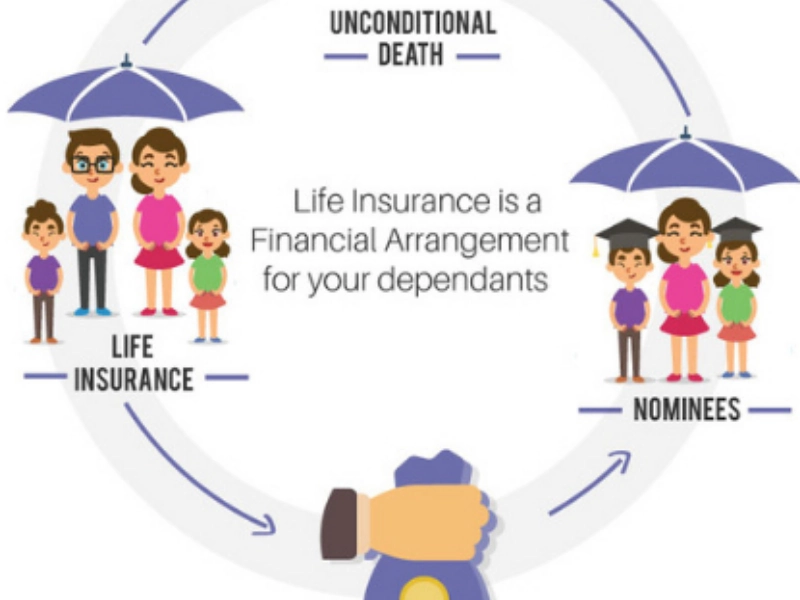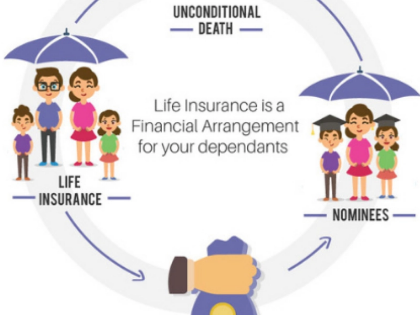Financial Education's Effects on People and Society
Research from all throughout the world indicates that, even in industrialized economies with well-established financial markets, financial literacy is shockingly low. These findings also highlight population vulnerabilities that need to be addressed in order to develop thorough remedies. A person can avoid debt, save for emergencies, and accomplish long-term objectives with the aid of financial education. Additionally, by increasing household awareness of trade-offs and the operation of policies, it can enhance decisions for economic reform.
Enhanced Capability to Make Decisions
 People who have received financial education are better able to comprehend how money and the financial markets operate. By using this information, they can gain financial security and steer clear of common financial hazards. Additionally, it can help them get ready for unanticipated economic catastrophes like the financial crisis of 2008–2009.
Global research has shown that, on average, only roughly one-third of people are aware of how money and financial systems work. It is concerning that this lack of knowledge still exists in industrialized economies with sophisticated financial systems (Lusardi et al., 2017).
Studies demonstrate that financial literacy greatly enhances people's capacity to plan ahead and make prudent decisions. However, depending on the goal, behavior and income level, financial education might be more or less beneficial. Specifically, certain behaviors—such as managing debt and saving money—seem to be harder to alter with education. Offering financial education at a "teachable moment" and emphasizing behavior modification are key to maximizing its impact. For instance, getting a mortgage is a significant life event that has to be planned carefully.
People who have received financial education are better able to comprehend how money and the financial markets operate. By using this information, they can gain financial security and steer clear of common financial hazards. Additionally, it can help them get ready for unanticipated economic catastrophes like the financial crisis of 2008–2009.
Global research has shown that, on average, only roughly one-third of people are aware of how money and financial systems work. It is concerning that this lack of knowledge still exists in industrialized economies with sophisticated financial systems (Lusardi et al., 2017).
Studies demonstrate that financial literacy greatly enhances people's capacity to plan ahead and make prudent decisions. However, depending on the goal, behavior and income level, financial education might be more or less beneficial. Specifically, certain behaviors—such as managing debt and saving money—seem to be harder to alter with education. Offering financial education at a "teachable moment" and emphasizing behavior modification are key to maximizing its impact. For instance, getting a mortgage is a significant life event that has to be planned carefully.
A rise in investments and savings
 It has been demonstrated that financial education increases savings, particularly for lower-income households. This is mostly because of two things: a better awareness of the advantages of conserving money and a decrease in the behavioral biases that frequently cause investors to make illogical choices.
People may prevent debt accumulation, spend less than they make, and save for important life events like emergencies, their children's college tuition, and retirement with the information they get from financial education. People with financial literacy are also better able to spot fraudulent activity and steer clear of fraud, as well as comprehend the hazards associated with investing.
The persistently low global financial literacy rates indicate that more work needs to be done to teach people the fundamentals of making sound financial decisions. Entire-life holistic educational programs may be a better way to meet the demands of a diverse population. Workplace-based initiatives that support financial wellness may also lead to higher contributions to and participation in retirement plans.
It has been demonstrated that financial education increases savings, particularly for lower-income households. This is mostly because of two things: a better awareness of the advantages of conserving money and a decrease in the behavioral biases that frequently cause investors to make illogical choices.
People may prevent debt accumulation, spend less than they make, and save for important life events like emergencies, their children's college tuition, and retirement with the information they get from financial education. People with financial literacy are also better able to spot fraudulent activity and steer clear of fraud, as well as comprehend the hazards associated with investing.
The persistently low global financial literacy rates indicate that more work needs to be done to teach people the fundamentals of making sound financial decisions. Entire-life holistic educational programs may be a better way to meet the demands of a diverse population. Workplace-based initiatives that support financial wellness may also lead to higher contributions to and participation in retirement plans.
Increased credit scores
 Individuals who lack financial literacy tend to make bad borrowing choices. Higher debt and loan default rates result from this, which may be detrimental to society as a whole. Additionally, because lower-income groups are disproportionately affected by financial illiteracy, it exacerbates poverty and income inequality.
However, financially knowledgeable young individuals can avoid costly credit card behaviors that lower credit ratings and manage student loans more skillfully. They can invest in their futures, start saving early, and take advantage of company match programs.
According to OECD research, students who are required to take a financial education course at school outperform their peers. According to Urban, Schmeiser, and Collins (2018), they also have lower credit score delinquency rates and are less likely to miss their mortgage and auto payments on time. This is the reason financial education should be made available in colleges, universities, businesses, and other settings.
Individuals who lack financial literacy tend to make bad borrowing choices. Higher debt and loan default rates result from this, which may be detrimental to society as a whole. Additionally, because lower-income groups are disproportionately affected by financial illiteracy, it exacerbates poverty and income inequality.
However, financially knowledgeable young individuals can avoid costly credit card behaviors that lower credit ratings and manage student loans more skillfully. They can invest in their futures, start saving early, and take advantage of company match programs.
According to OECD research, students who are required to take a financial education course at school outperform their peers. According to Urban, Schmeiser, and Collins (2018), they also have lower credit score delinquency rates and are less likely to miss their mortgage and auto payments on time. This is the reason financial education should be made available in colleges, universities, businesses, and other settings.
Enhanced confidence in oneself
 People who have received financial education are more comfortable making decisions, creating plans for the future, and handling financial-related situations, such as managing debt, setting aside money for retirement or a down payment on a house, and investing in riskier assets. It also aids in understanding insurance products and the warning indicators of fraud.
Additionally, having a solid understanding of finances can help people become more autonomous since they won't need to rely on others for guidance or help. As a result, it can enhance quality of life and assist in resolving circumstances in which a person's income is jeopardized due to an unexpected emergency or job loss.
For this reason, studies demonstrate the significant influence that financial education has on behaviors like credit ratings, savings, and spending. Instead of just putting new information into people's heads, programs must prioritize behavior modification and shaping. This will guarantee that financial education yields the advantageous results mentioned above. Schools, businesses, or community platforms can be used for this.
People who have received financial education are more comfortable making decisions, creating plans for the future, and handling financial-related situations, such as managing debt, setting aside money for retirement or a down payment on a house, and investing in riskier assets. It also aids in understanding insurance products and the warning indicators of fraud.
Additionally, having a solid understanding of finances can help people become more autonomous since they won't need to rely on others for guidance or help. As a result, it can enhance quality of life and assist in resolving circumstances in which a person's income is jeopardized due to an unexpected emergency or job loss.
For this reason, studies demonstrate the significant influence that financial education has on behaviors like credit ratings, savings, and spending. Instead of just putting new information into people's heads, programs must prioritize behavior modification and shaping. This will guarantee that financial education yields the advantageous results mentioned above. Schools, businesses, or community platforms can be used for this.











